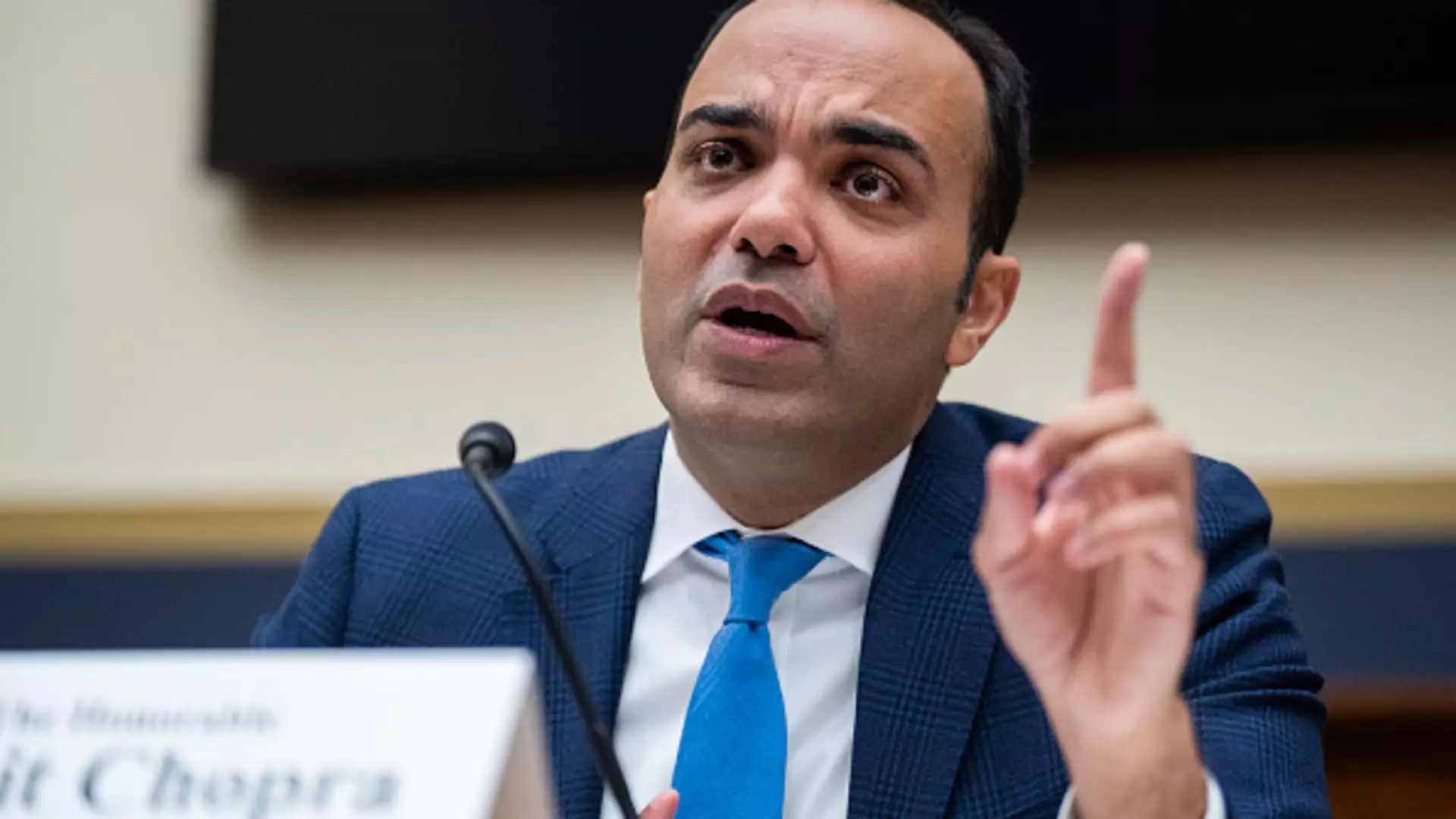The Consumer Financial Protection Bureau recently declared that customers of the buy now, pay later industry are entitled to the same federal protections as credit card users. This development has significant implications for the rapidly growing sector, which is currently dominated by fintech firms like Affirm, Klarna, and PayPal. The regulatory framework put forth by the CFPB aims to ensure that consumers receive the necessary safeguards when using BNPL services.
The CFPB’s “interpretive rule” under the Truth in Lending Act categorizes BNPL lenders as being on par with traditional credit card providers. This means that BNPL companies must adhere to regulations such as providing refunds for returned products or canceled services, investigating merchant disputes, pausing payments during investigations, and disclosing fees on bills. According to CFPB Director Rohit Chopra, regardless of whether a customer uses a credit card or a buy now, pay later service, they are entitled to fundamental consumer protections mandated by existing laws and regulations.
The BNPL industry has experienced exponential growth in recent years, with transaction volumes skyrocketing from 2019 to 2021. The CFPB’s scrutiny of the sector stems from concerns that some users may be taking on more debt than they can manage. Chopra emphasized the importance of ensuring that competitive offerings in the market do not circumvent established consumer rights and responsibilities enshrined in the law.
While many BNPL providers already offer refund and dispute resolution services, the new rule will standardize these practices across the industry. BNPL companies will be required to comply with the regulations outlined by the CFPB within 60 days of the rule taking effect. This move towards greater oversight has been anticipated by industry players, who have argued that the unique characteristics of BNPL products warrant a tailored regulatory framework.
Some BNPL companies have pushed back against increased regulation, citing the comparative advantages of their offerings over traditional credit cards. In light of the CFPB’s rule, there is a possibility that industry players may challenge the regulatory framework through legal means. The precedent set by the judicial pause on the implementation of the CFPB’s cap on credit card late fees indicates a potential for legal disputes between the agency and industry stakeholders.
The CFPB’s regulatory intervention in the buy now, pay later industry marks a significant milestone in consumer protection. By equating BNPL lenders with credit card providers in terms of regulatory oversight, the agency aims to safeguard consumers’ interests and ensure fair practices within the industry. As the sector continues to evolve, it is essential for BNPL companies to embrace these regulatory changes and work towards fostering a more transparent and accountable financial landscape.


Leave a Reply